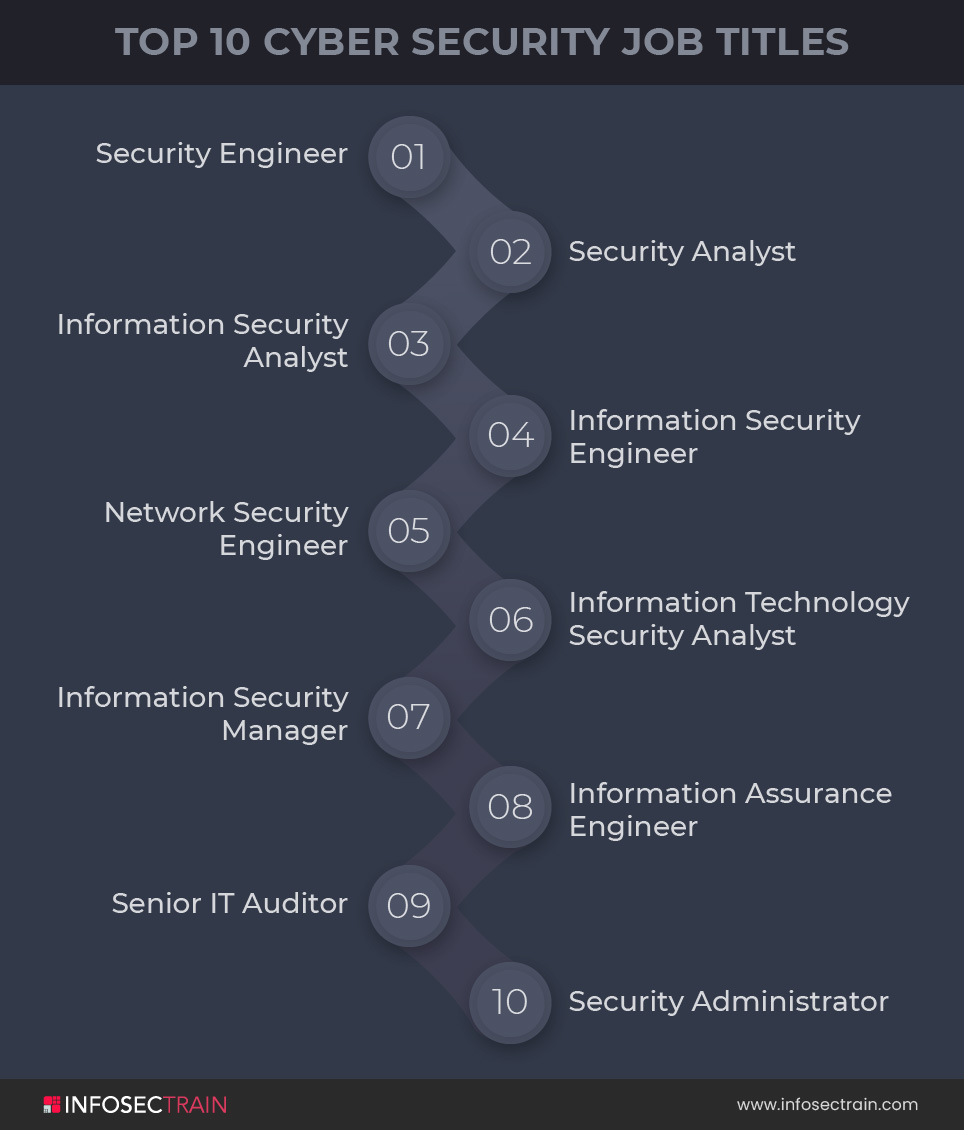How to Become a Cyber Security Analyst
What Is a Cyber Security Analyst?
The primary responsibility of a Cyber Security Analyst is to secure a company’s network and infrastructure from cyber-attacks. Threat protection measures and security controls are also implemented by Cyber Security Experts. They can also simulate security threats to identify possible security flaws within the organization.

Since hackers are constantly developing new tactics and techniques, Cyber Security Analysts must also keep up with the latest advancements in their digital weapons.
How to Become a Cyber Security Analyst?
To become a Cyber Security Analyst, you must have a solid understanding of information systems and networks, obtain better technical ability, and keep up with cybersecurity training. To work as a Security Analyst, you must meet many requirements, many organizations would consider candidates with a degree in information security or a similar field. Starting an entry-level IT job is another way to get into this sector. Certifications and online training will help you to achieve experience and the skills you need. Certifications help you to increase your income power and be more capable than others.
In comparison to other technology careers, cybersecurity is a relatively new sector. It means that becoming a Cyber Security Analyst can be accomplished in a variety of ways. A bachelor’s degree in computer science and related areas is needed for the Cyber Security Analyst position. As the requirements for Cyber Security increase, companies are paying much attention to good skills and experienced candidates while hiring.
To become a Cyber Security Analyst, follow these five steps:
1. Learn the Basics of Cyber Security: The very first move in learning how to be a Cyber Security Analyst is to become familiar with the latest threat environment. As technology advances, it is important to understand how to spot vulnerabilities and threats. It’s also important to understand Cyber Security basics, such as how information networks can be compromised and how to identify and prevent attacks. You should also learn about network infrastructure and protocol, routing and switching, firewalls, and other relevant Cyber Security concepts.
2. Practicing Cybersecurity Techniques: After studying the basics of Cyber Security, it is necessary to put your skills to work and perform basic Cyber Security activities like performing security audits, analyzing network traffic, and encrypting data. Several online cybersecurity simulation labs simulate real-world scenarios that allow you to bring your Cybersecurity skills to test and practice and help to deal with actual scenarios.
3. Obtain a Certificate in Cybersecurity: Taking a Cybersecurity certification course is an excellent way to learn about Cybersecurity, the current threat environment, and the technologies and resources that are used to identify and defend against attacks.A good Cybersecurity course will teach you how information systems work along with the tools and best practices for identifying risks and defending against them. The best of these courses will encourage you to receive a cybersecurity certification, which will help you stand out when applying for a position as a Cyber Security Analyst.
4. Analyze the Industry: Cybersecurity must be updated regularly. Cybercriminals are constantly inventing new techniques and shortcuts. It is important to keep up with emerging technologies in the Cybersecurity and Cybercrime world is looking for good Cyber Security Analysts. You will ensure that your expertise and capabilities are up to date by keeping up with new security and information technology developments.
5. Apply for Cybersecurity Jobs: Experts who work in the field of Cybersecurity are in high demand. most in-demand cybersecurity positions:

Cyber Security Analysts Skills
To handle malware and security threats, a Cybersecurity expert must have a diverse set of skills. A Cyber Security Analyst’s most essential skills are:
- Networking: Cyber Security Analysts must have extensive experience with a variety of networks and a thorough understanding of how any of these elements will affect an organization’s security.
- Operating Systems: Cyber Security Analysts must be able to operate a variety of operating systems, including Linux, Windows, iOS, and Android.
- Hacking: To understand the hacking process, Cyber Security Analysts must think like a hacker. This would help them to predict and counter cyber-attacks before they occur.
- Scripting: Knowledge of Computer programming languages and scripts, such as Java or C++, are in high demand. This makes it possible for Cyber Security Analysts to decode threats and rewrite software.
What Certifications Do You Need to Work as a Cyber Security Analyst?
There are a variety of certifications available for both entry-level and experienced Cyber Security Analysts.
Certified Ethical Hacker (CEH) Certification
A Certified Ethical Hacker V11 certification helps you to use your hacking skills and experience to help a company legally enhance its security. This certificate verifies that you can search for vulnerabilities and defects in the target network.
You can check Infosec Train’s CEH V11 Introduction by InfosecTrain video to get an overview of CEH and topics covered in CEH.
CompTIA Cybersecurity Analyst (CySA+) Certification
The CompTIA CYSA+ certification is a cybersecurity analyst certification that teaches you how to use analytics in the network to detect cybersecurity risks.
Certified Information Systems Security Professional (CISSP) Certification
The International Information Systems Security Certification Consortium (ISC)² established the CISSP Certification, which is an internationally recognized information security certification. It certifies your ability to plan, build, and manage a secure business environment.
You can check Infosec Train’s CISSP Introduction by InfosecTrain video to get an overview of CISSP.
Certified Information Systems Auditor (CISA) Certification
The CISA certification was issued by ISACA (Information Systems Audit and Control Association). This is a recognized professional certification that verifies your knowledge of information system auditing, control, and security.
You can check Infosec Train’s CISA Introduction by InfosecTrain video to get an overview of CISA.
What Next?
If you’re passionate about designing the strongest defense systems and Ethical Hacking, Cybersecurity is the ideal career direction for you.
CEH v11 Certification Training provided by InfosecTrain is specifically for those who wish to improve and upgrade their technology and programming expertise to deal with security challenges.
InfosecTrain is one of the best consulting organizations, focusing on a wide range of IT security training. The training sessions will be delivered by highly qualified and professional trainers with years of industry experience. This CEHv11 training will teach you all of the skills to succeed in the field of cybersecurity. For more Cybersecurity related blogs please visit the following link.









 1800-843-7890 (India)
1800-843-7890 (India)